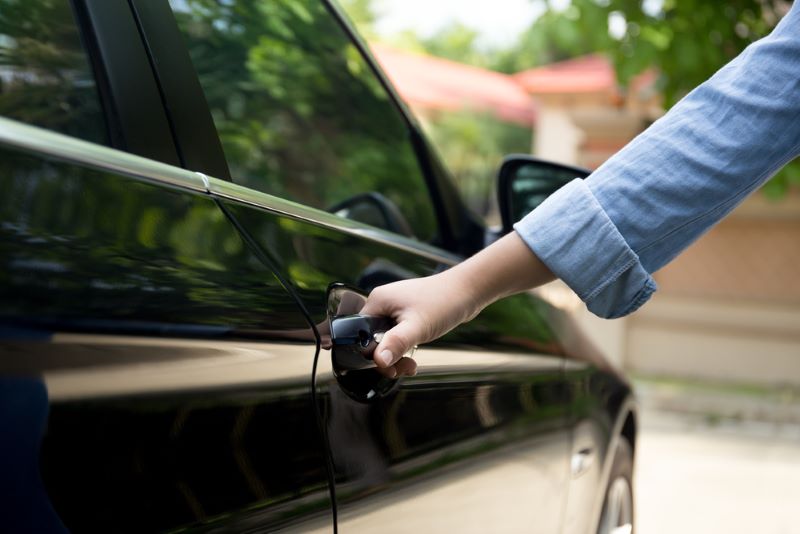Hydrogen-powered vehicles, like the Toyota Mirai, represent a significant step toward eco-friendly transportation. With zero emissions and innovative technology, they appeal to drivers seeking greener alternatives to traditional cars. However, a critical issue plagues Mirai owners: the limited availability of hydrogen fueling stations. This shortage not only causes inconvenience but also raises questions about the viability of owning such a vehicle in areas with inadequate infrastructure.
For Toyota Mirai owners facing fueling difficulties, the lack of reliable infrastructure can have financial, logistical, and emotional repercussions. As the hydrogen network grows slowly, many owners wonder if they are entitled to compensation for the challenges they face. Understanding the legal options available and the manufacturer’s responsibilities is crucial for addressing these issues effectively.
1. Understanding the Scope of the Problem
Unlike traditional gasoline or electric vehicles, hydrogen cars depend on specialized fueling stations, which are sparse even in regions that promote hydrogen adoption. California, for instance, is home to the largest concentration of hydrogen fueling stations in the United States, yet even there, drivers often encounter issues such as:
- Limited Coverage:Stations are spread out, making it difficult to refuel during long trips or in rural areas.
- Operational Downtime:Many stations experience frequent outages, leaving drivers stranded or forced to detour significantly to find an operational pump.
- High Demand:In popular areas, drivers may face long lines at the few functioning stations, further compounding delays.
These issues reduce the practicality of owning a hydrogen-powered vehicle and, in some cases, make it impossible for owners to use their cars as intended. This situation has led many Mirai owners to consider whether compensation or legal action is warranted.
2. Legal Grounds for Seeking Compensation
Owners experiencing persistent issues related to fueling station shortages may have legal recourse depending on the circumstances. Some potential grounds for seeking compensation include:
- Breach of Warranty:A warranty implies that a product will perform as expected under normal conditions. If the lack of fueling stations renders the vehicle unusable, owners may claim that Toyota breached this warranty.
- Misrepresentation or False Advertising:If Toyota marketed the Mirai as a practical and reliable vehicle without adequately disclosing the limitations of hydrogen infrastructure, this could be grounds for a claim.
- Lemon Law Protections:While lemon laws primarily cover mechanical defects, some interpretations suggest that an inability to use the vehicle as intended—due to fueling issues—may qualify for coverage in certain cases.
Pursuing compensation under these grounds requires a thorough understanding of consumer protection laws and the specific details of the vehicle’s purchase agreement.
3. Toyota’s Efforts to Address Fueling Station Issues
Toyota has recognized the challenges faced by Mirai owners and has taken steps to alleviate some of the burden. These initiatives include:
- Collaborating with Partners:Toyota has worked with energy companies and state governments to expand the hydrogen fueling network, particularly in California. However, progress has been slow due to logistical and financial hurdles.
- Providing Fuel Credits:Many Mirai owners receive complimentary hydrogen fuel credits as part of their vehicle purchase, reducing out-of-pocket costs for refueling.
- Offering Buyback Programs:In cases where fueling station access is particularly limited, Toyota may offer buybacks or trade-in options to dissatisfied customers.
While these efforts demonstrate Toyota’s commitment to supporting its customers, they do not fully address the root problem of inadequate infrastructure. For many owners, these measures may not compensate for the time, inconvenience, and financial strain caused by the shortage of fueling stations.
4. Steps Mirai Owners Can Take
If you are a Toyota Mirai owner dealing with fueling station shortages, there are steps you can take to address your concerns and explore potential compensation:
- Document Your Experience:Keep detailed records of the issues you face, including station outages, time spent searching for fuel, and any additional expenses incurred as a result of the shortage.
- Review Your Warranty and Purchase Agreement:Understanding the terms of your agreement with Toyota can help you identify clauses related to fueling infrastructure and potential remedies.
- Contact Toyota Directly:Report your concerns to Toyota’s customer service department and inquire about possible solutions, such as extended fuel credits or buyback options.
- Consult an Attorney:A legal professional with experience in automotive and consumer protection cases can evaluate your situation and advise you on the best course of action.
- Explore Alternative Resolutions:Consider arbitration or mediation if a direct resolution with Toyota proves difficult. These methods can provide a faster and less adversarial path to compensation.
Taking these steps ensures that your concerns are taken seriously and increases the likelihood of a satisfactory resolution.
5. Advocating for Infrastructure Growth
While addressing individual concerns is essential, long-term solutions require a collective effort to expand hydrogen fueling infrastructure. Mirai owners can play an active role in advocating for improvements by:
- Engaging with Advocacy Groups:Join organizations that promote hydrogen technology and push for expanded infrastructure investments.
- Providing Feedback to Policymakers:Contact local and state officials to express the importance of funding and incentives for hydrogen station development.
- Collaborating with Toyota:Share your experiences and suggestions with Toyota to help shape their strategies for supporting hydrogen vehicle owners.
These efforts not only benefit current Mirai owners but also pave the way for broader adoption of hydrogen-powered vehicles in the future.
Call Ingber Law Group for Your Toyota Mirai Lawsuit
The lack of hydrogen fueling stations poses significant challenges for Toyota Mirai owners, affecting the usability and practicality of their vehicles. While Toyota has taken steps to mitigate the impact, some owners may find these measures insufficient and consider pursuing compensation. Understanding your legal rights and exploring potential remedies is crucial for addressing these challenges effectively.
At Ingber Law Group, we are committed to helping Toyota Mirai owners explore their options and achieve fair outcomes. If you’re facing difficulties due to fueling station shortages, contact ustoday to schedule a consultation. Our experienced legal team is ready to provide the guidance and support you need.




